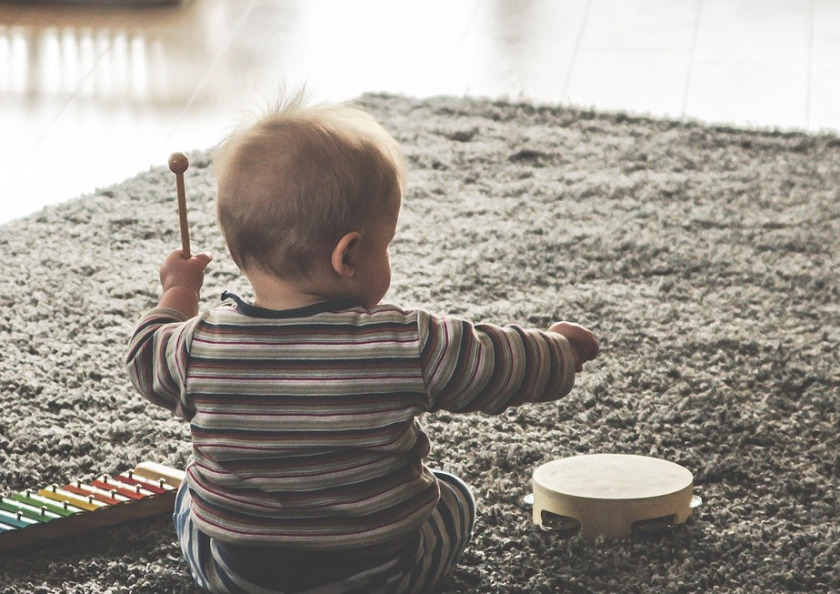Children who can keep a beat may be better readers and talkers
A team of researchers at Northwestern University in Illinois has found that the ability to synchronise with a beat could indicate how well children of pre-school age will develop their future reading skills.
To begin the research, 35 children were given a toy drum and asked to beat it in time with an adult beating on a similar drum. Those that could do it well were described as ‘synchronisers’, those that could not, as ‘nonsyncronisers’.
Then the researchers measured the children’s brain waves. The children listened to sounds the researchers played, such as “da” and “ba”, initially with no other sound, and then with background noise. The researchers found that the ‘synchronisers’ processed the played sounds with greater precision than the ‘nonsyncronisers’.
Further tests showed that the ‘synchronisers’ were better on overall language abilities than the ‘nonsyncronisers’, which means that it might be possible to use the same process to test children as young as infants for their later reading ability.
Reading specialists believe that devising a test for reading aptitude before teaching children to read would help children of all levels.
The researchers plan to continue monitoring the same children in the study for five years to see if their testing method is viable.
Image from Pixabay, reproduced under Creative Commons CC0.
SOURCES:
PNAS: http://www.pnas.org/content/111/40/14559
Dyslexia United: http://dyslexiauntied.blogspot.co.uk/2014/09/beat-synchronization-in-preschoolers.html
